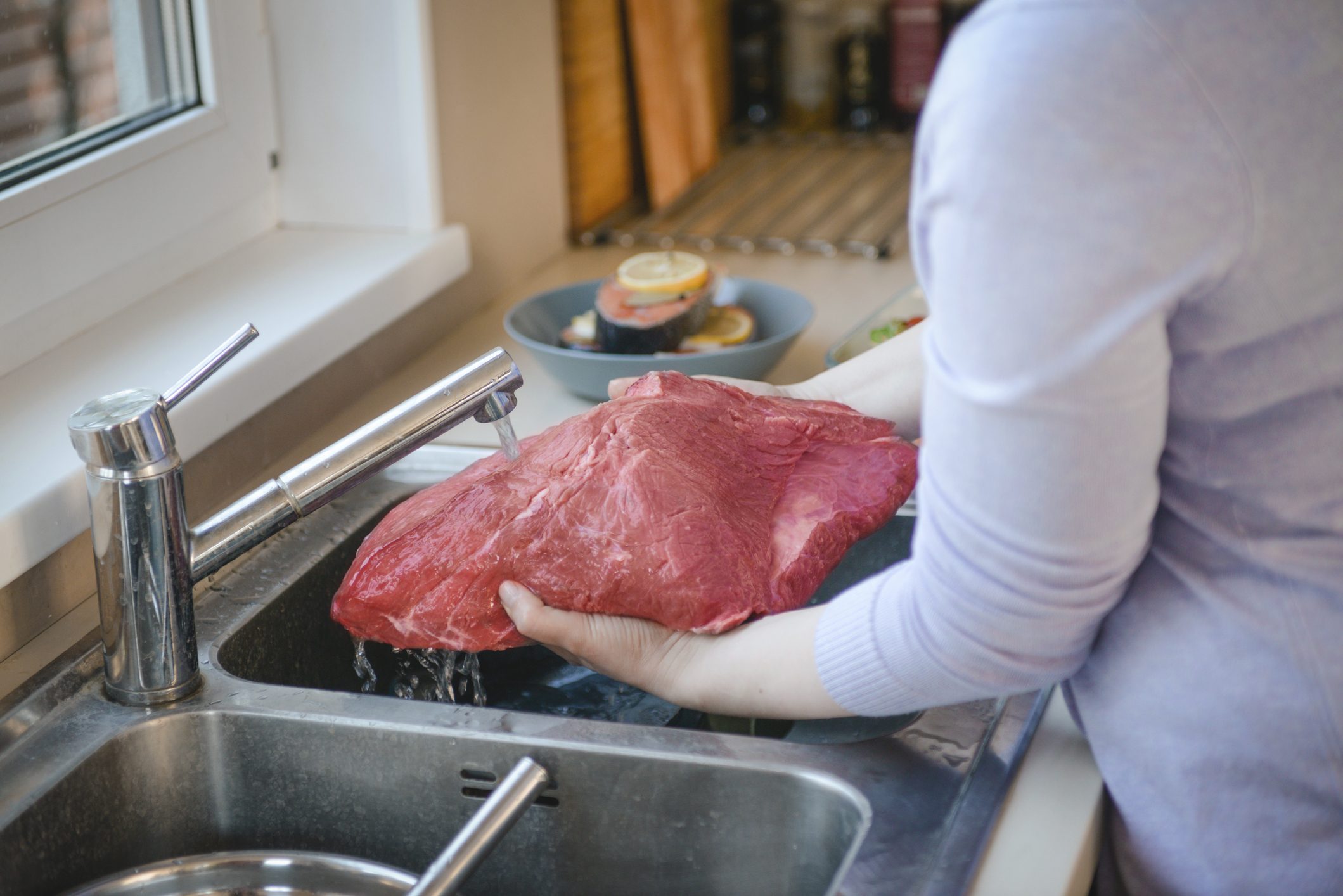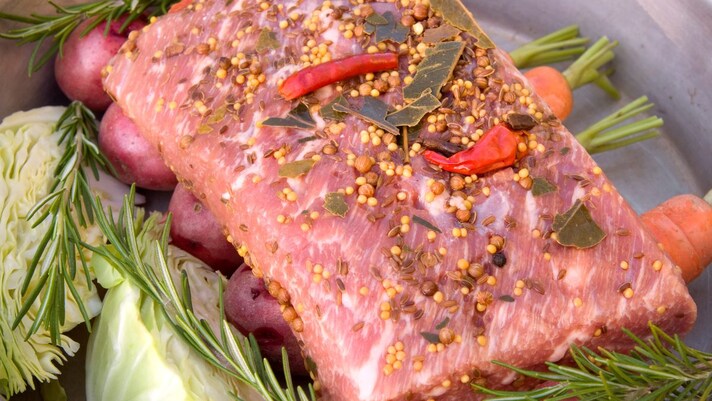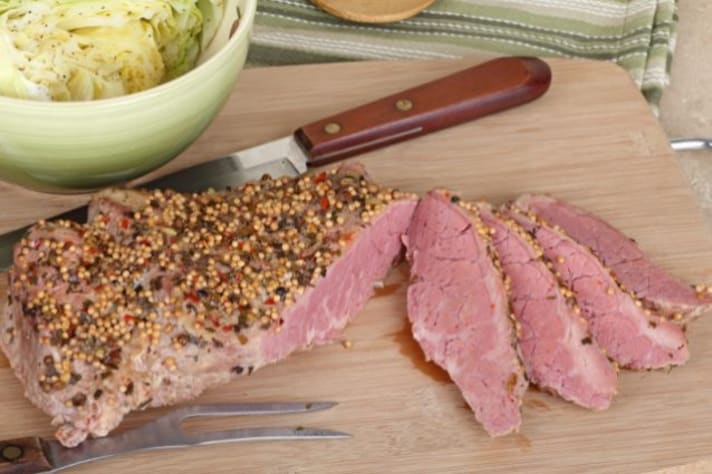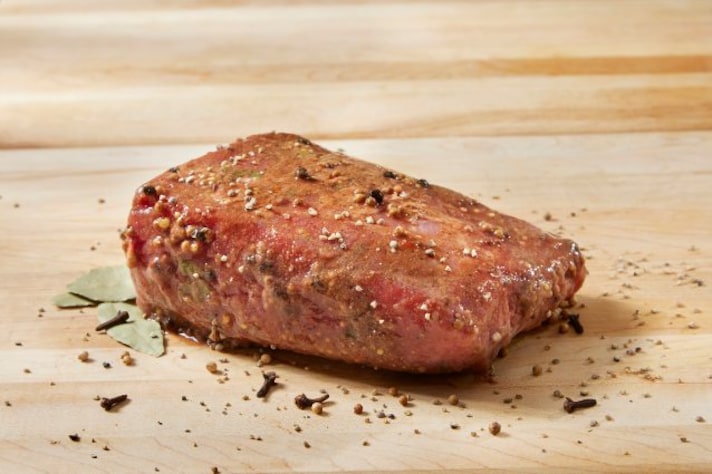Here’s Why You Should Never Skip the Rinsing Step Before Cooking Corned Beef
Rinsing corned beef before cooking is essential to remove excess salt from the brine, preventing the meat from being overly salty. Skipping this step can lead to a salty, unevenly cooked dish with poor texture and a foamy, cloudy broth. The only time you can skip it is with homemade or pre-rinsed low-sodium corned beef.
;Resize,width=742;)
Corned beef—whether served up on St. Patrick’s Day or as part of a hearty family meal—can be a showstopper when cooked properly. But if you’ve ever found your corned beef a bit too salty or noticed strange textures in your dish, you might have skipped a crucial step: rinsing the meat before cooking it. Particularly if you’ve bought a ready-made or pre-brined corned beef, this seemingly small step can make a world of difference.
Why Skipping the Rinse Leads to Salty Surprises
One of the main reasons you should rinse corned beef before cooking is to reduce its saltiness. Corned beef is cured in a brine made primarily of salt and other seasonings, which helps preserve and flavor the meat. While this curing process is essential to creating the signature taste of corned beef, it also means the meat is saturated with salt by the time it hits your kitchen. Skipping the rinse can leave your final dish overwhelmingly salty, overpowering the flavors you want to enjoy.
Imagine serving corned beef at a dinner party and watching everyone frantically reach for their water glasses—probably not the reaction you were hoping for. By rinsing the meat under cold water, you wash away excess salt, striking the perfect balance between savory and salty in your dish. So, no, it’s not just a trivial step; it’s key to a well-seasoned, tasty result.

Too Much Brine, Too Little Texture
Beyond salt, skipping the rinse can affect the texture of your corned beef. That brine it’s been soaking in isn’t just salty—it’s also packed with spices, sugar, and other flavorings. Leaving too much of it on the meat can lead to an overly briny taste, with the flavor of the spices becoming too concentrated, overpowering the beef’s natural richness. The rinsing process helps to wash away any excess seasoning that could otherwise form clumps on the surface or cause a sticky, uneven texture in your finished dish.
Additionally, that excess brine can also cause the corned beef to cook unevenly. Too much surface salt and seasoning can disrupt how the meat absorbs heat, leading to an inconsistent cook, and nobody wants a dry exterior and undercooked interior.

Too Much Foam and a Cloudy Broth
If you’re boiling or simmering your corned beef, skipping the rinse can also create a foamy, cloudy broth as the excess salt and brine interact with the water. This foam is harmless, but it’s definitely not appetizing and can make the cooking process messier. Plus, it gives you one more thing to deal with when you’re just trying to focus on getting that perfect corned beef onto the table.

On the other hand, rinsing the meat beforehand helps maintain a cleaner cooking liquid, which can be especially important if you’re planning on using that liquid to cook vegetables or create a sauce. By removing the excess brine, you ensure that the broth remains flavorful but not overwhelmingly salty or murky.
When Skipping the Rinse Is Okay
Now, are there any situations where you can skip rinsing your corned beef? Yes, but they’re rare. If you’re dealing with a homemade corned beef where you’ve controlled the amount of salt in the brine, you might not need to rinse it. Likewise, if you’ve bought a low-sodium corned beef or a version specifically labeled as "pre-rinsed," you may be able to skip this step. However, it’s always a good idea to check the packaging carefully or give the meat a quick taste test to ensure it isn’t overly salty.
For most store-bought, ready-made corned beef, though, rinsing is the safest route to ensure a delicious, balanced flavor in your final dish.
;Resize,width=767;)


;Resize,width=712;)
